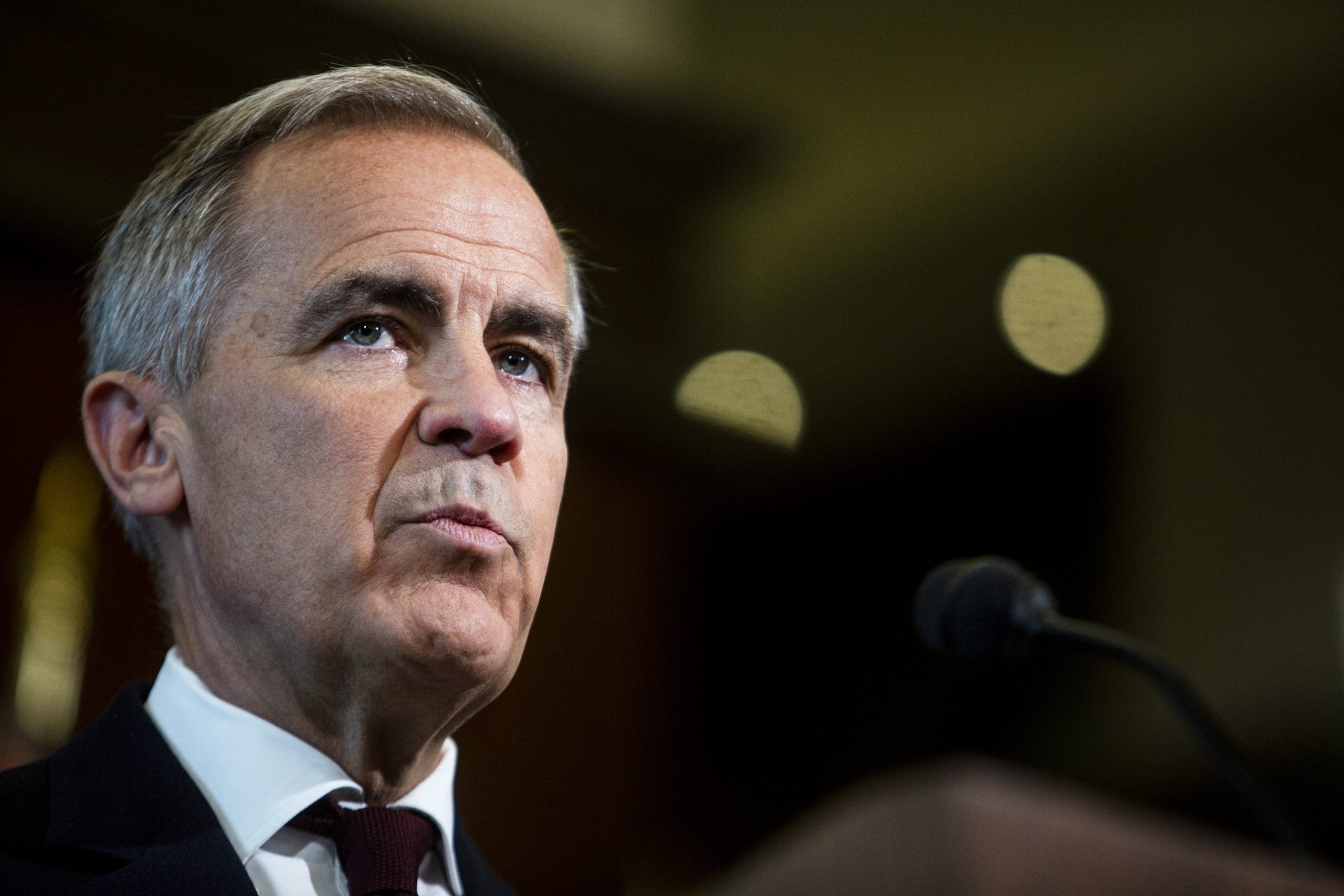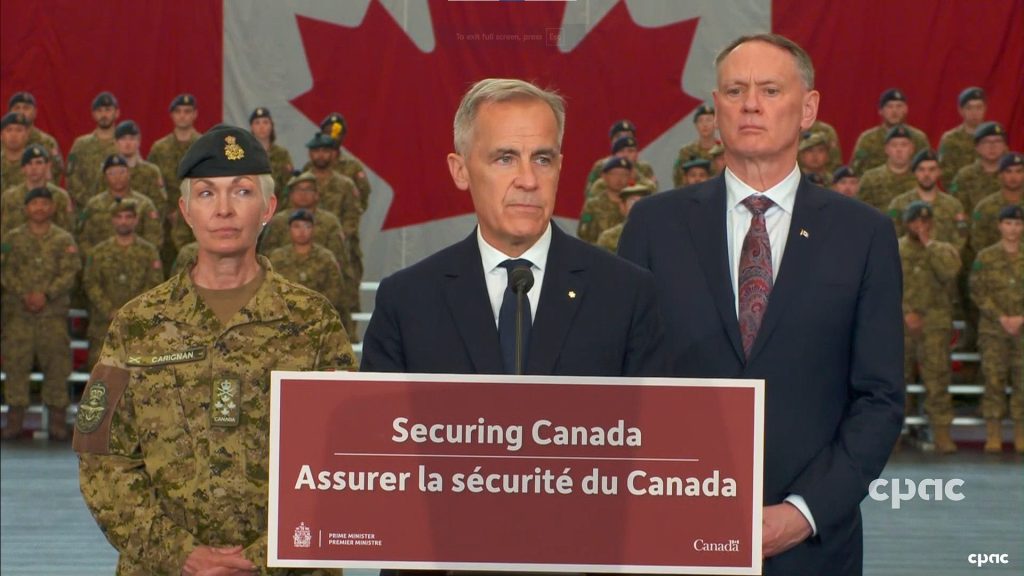Carney’s ambitious agenda runs counter to how Ottawa operates

With each passing day it seems increasingly likely that Prime Minister Mark Carney is the quintessential unstoppable force running into the immovable object that is “Ottawa.”
First, let’s agree that Carney has the most ambitious agenda of any prime minister in recent times. While he only has seven priorities, some of them might as well be inventing cold fusion or curing cancer given how big a lift they will require.
But his focus is uncanny: every minister received the exact same mandate letter that ostensibly boils down to “figure out how your department fits into the platform priorities and do that.”
His Throne Speech—delivered by King Charles III, no less—was entirely on these priorities. The same goes for Carney’s public appearances since the election. His legislative agenda: 100-per-cent the same. His goals for the myriad high-profile domestic and foreign meetings (first ministers’ meeting, Federation of Canadian Municipalities, G7, Canada’s meetings with the European Union, NATO) all focus on these priorities. His responses in Question Period…you get the point.
But ya know what those priorities aren’t necessarily? Those of everyone else in Ottawa.
One of the problems with having not had an active government in Ottawa for the last six months is that things have piled up. Deputy ministers, senior officials, stakeholders, lobbyists, and corporations all have lists of things that have been waiting for a decision for months. And many of those decisions have nothing to do with Carney’s priorities.
That’s not to say those other things aren’t important or worth doing, but with finite time and resources, they have already started competing for time, money and attention.
The power of bureaucratic inertia should never be underestimated. Many around town are already digging in to entrench their interests and put up walls to stop many of the most important things Carney has promised—defence procurement is an obvious example.
Unstoppable force, meet immoveable object.

Don’t get me wrong: Carney’s ambition is not only impressive, but it’s also exactly what the moment calls for. Infrastructure, defence procurement, internal trade, government efficiency: those are all files that have been screaming for attention, some for 20-plus years.
And, to say the quiet part out loud, thanks goes to United States President Donald Trump for making it possible to do these things with a stunning level of national consensus!
But let’s be clear: time is not Carney’s friend on any of these files.
I am not one who believes that the current strand of American nativism goes away with the mid-terms or even with Trump. U.S. Vice-President JD Vance and the cadre of daytime vampires around him like senior presidential adviser Stephen Miller are far more scary on these issues because one gets the sense he actually believes in them (as opposed to the opportunist that is Trump).
But cracks in Team Canada are already beginning to appear. First Nations—including the Assembly of First Nations—are sounding the alarm around Carney’s efforts to push big projects forward without adequate consultation and consent. Attorney General Sean Fraser got a taste of this when he declared recently that no, First Nations do not have a constitutional or UNDRIP-based veto of those projects, and then walked the comment back—at length—the very next day.
Generally Liberal-friendly media like Althia Raj at The Toronto Star are looking at Carney’s early signature legislation— Bill C-5, An Act to enact the Free Trade and Labour Mobility in Canada Act and the Building Canada Act—and calling it “the type of legislation that Conservative prime minister Stephen Harper might have been too timid to bring forward, fearing a public backlash.”
So, while the crazy in the U.S. will likely continue for most of the next decade in some form or another, how long Canadians are able to focus their attention on the dumpster fire in our own basement is far less certain.
Carney needs to deliver quickly. He knows that. He says that. But the internal signs are that he does not fully appreciate what is necessary in order to do that.
Most concerningly, that isn’t what the current iteration of the senior public service has been built for: a combination of the Harper-era purges of independent thinkers and the Trudeau-era focus on communications over delivery are conspiring to create that immovable object.
Developing processes for dealing with other people’s priorities efficiently through the Prime Minister’s Office/Privy Council Office/Treasury Board Secretariat; a major realigning of deputies and other senior officials to those more suited to delivering big things; and a mandate to allow ministers to make some pretty major decisions in their own departments without excessive central review are all ideas the prime minister is going to have to embrace if he wants to get things done.
Carney may have taken one of the first steps in addressing these challenges last week by appointing Michael Sabia the next Clerk of the Privy Council—effectively both the PM’s deputy minister and head of the public service. As Stephen Harper’s former director of communications put it on X, “With this nomination, Mark Carney has sent an unmistakable message to the entire federal public service: change is coming—and not a leisurely pace.”
More will be required.
Politics—especially the bureaucratic kind—is all about compromise. And Carney’s willingness to do some horse trading will be the principal determinant of how successful his ambitious agenda ultimately is.
The new PM has had a helluva good start to his mandate. He is clearly focused on things that matter to Canadians, including things that have been neglected by his predecessors.
But, despite his inclinations, he needs to accept he can’t do it all alone.
Jamie Carroll is a former national director of the Liberal Party of Canada and is now an entrepreneur and consultant.
The Hill Times





 LICENSING
LICENSING PODCAST
PODCAST ALERTS
ALERTS


